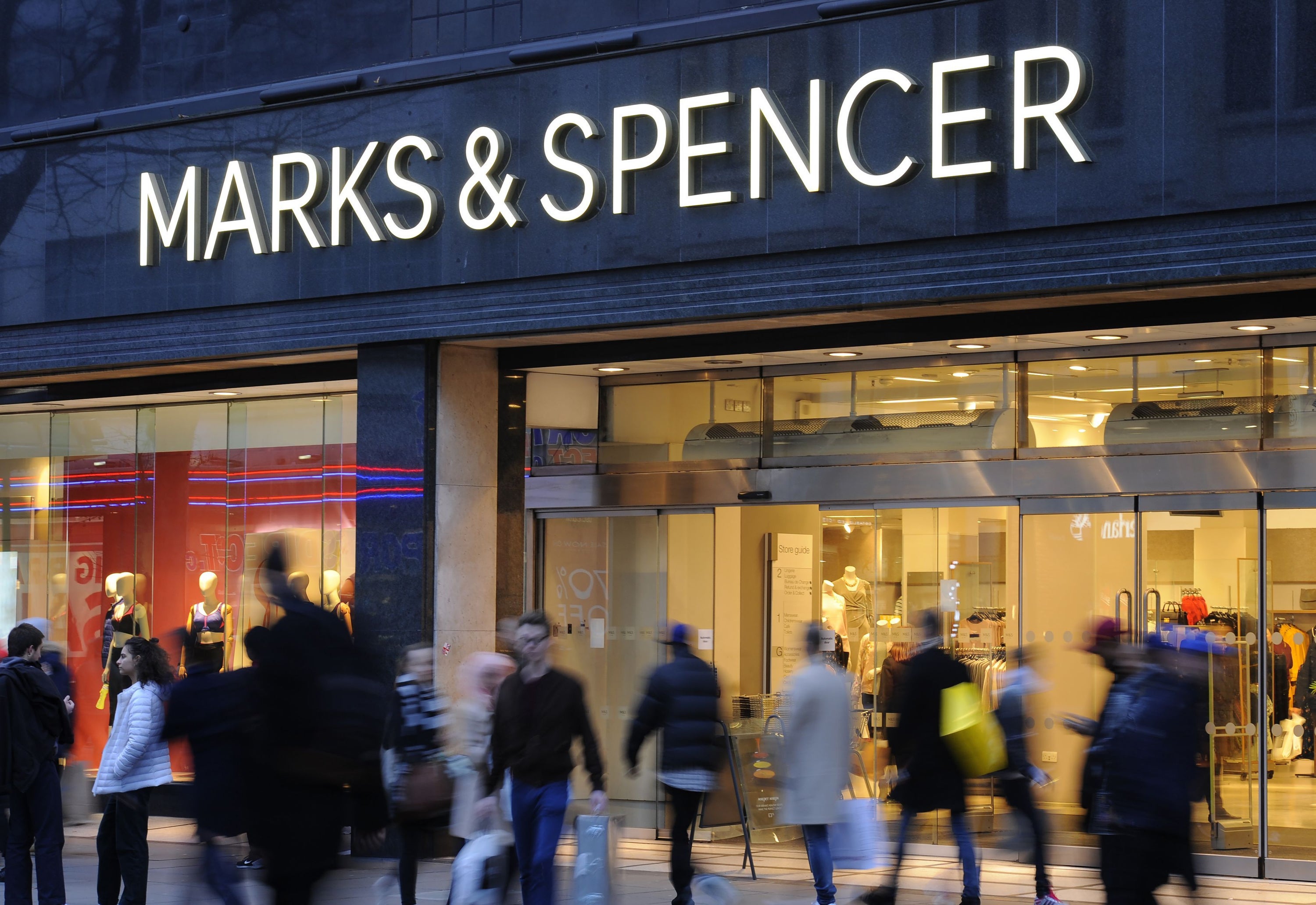We need to cut business rates and introduce an online levy to save the high street
It’s difficult to know where Marks and Spencer are coming from when they oppose an online sales tax; the chancellor should instead listen to the alliance of major players who want to see one introduced, writes Chris Blackhurst


After three months, the chancellor, Rishi Sunak, has closed his review of changes to business rates. Judging by the declared positions of some of our leading retailers, the outcome is far from clear.
Two weeks ago, a “retail jobs alliance” of major players, including Sainsbury’s, Tesco, Co-op and Morrisons, called for an overall cut in business rates for all premises and said they were “open to the possibility” this could be funded through an online sales tax.
This heavyweight group – which also included Greggs, Waterstones, B&Q-owner Kingfisher, the Usdaw union and bodies representing independent retailers and convenience stores – maintained an online tax would help “level the playing field” between internet retailers and bricks-and-mortar stores. This at a time when Covid-19 and lockdowns have further driven shoppers online.
To add muscle to their argument it was pointed out that members of their alliance employ more than a million people across the UK, representing one-third of jobs in the entire retail sector.
That, you might think, would be a clincher. After all, they don’t come any bigger.
But wait, here comes Marks & Spencer. Its chief financial officer, Eoin Tonge, has written to Sunak saying that traditional shopkeepers have worked hard to diversify and grow their online sales. “Introducing an additional tax on retail – already overburdened – will simply mean retailers cut their cloth accordingly,” he said. “This rationalisation will always start with the least profitable parts of a business – which, in the case of multi-channel retailers, will more often than not be high-street stores.”
Tonge added: “Therefore it is likely that, far from helping the high street, an online sales tax will damage shops and our high streets further, particularly in areas that require new investment to bring them back to life.”
M&S is nowhere near the combined size of Tesco and the others in that alliance. It’s true, as well, that the days of the chain being the bellwether for the high street have long gone. But to suggest it does not have influence and should not be listened to is plain wrong.
Once it was possible to easily define a digital retailer. Not anymore. Take Amazon. Most people would agree that the US behemoth is the ultimate digital purveyor. But where I live there is now an Amazon Fresh store
Ask town centre bosses up and down the land who they most fear putting up the shutters and they will probably say M&S. Likewise, ask them who they would most like to attract as an anchor tenant and they most likely will name M&S.
Also, this is a revitalised M&S. For the first time in many years, the company is on an upward trajectory. Finally, they seem to have improved the mix of large and small stores, their clothing ranges are being better received (watch, as a recession deepens, how M&S cleans up as value-for-money takes over), the food shops are humming, and most importantly, online, thanks to the partnership with tech delivery specialist Ocado, is on a fast growth track. They’ve married bricks-and-mortar with online at last – not perfectly, it must be said, there are still too many cavernous, near-empty big stores – but they are getting there.
What Tonge’s letter highlights is that the situation is not black and white: online versus on-the-street. Those days have gone for M&S, as indeed they have for Tesco, Sainsbury’s and others.
Once it was possible to easily define a digital retailer. Not anymore. Take Amazon. Most people would agree that the US behemoth is the ultimate digital purveyor. But where I live there is now an Amazon Fresh store. It’s next to WH Smith and Superdrug, along from Waitrose.
The blurring set in a while back. One milestone was when the online brigade was admitted to the British Retail Consortium (BRC), the industry association. The tradionalists found themselves with cuckoos in their midst. One well-known retailing entrepreneur, with bricks-and-mortar shops across the country, said to me it was impossible for the BRC to push for an online tax to try and create more balance when the tech giants were in the same room.
Ideally, anachronistic and complicated business rates should be scrapped completely, and a whole new, simplified charge imposed. Currently, business rates raise £25bn a year for the public purse.
So, the Treasury must find a way of bringing in £25bn – assuming Sunak refuses to cut the take – and treating everyone fairly.
That will be difficult, more so given the M&S intervention. But M&S is on its own. The bulk of retailers are with the new grouping. Its members, too, can point to the fact that the likes of Tesco and Sainsbury’s are set up pretty much the same as M&S – with a mix of large and small physical stores and healthy online operations. They are prepared to swallow an online sales tax, and, unlike M&S, they are not threatening to close stores or lower investment as a result.
Sunak should take comfort from M&S acting as an outlier. It’s difficult to know where Tonge and his company colleagues are coming from: after all, at risk here is a healthy, buoyant high street and that must be to M&S’s benefit; by not imposing some sort of online tax, by not even attempting to level the playing field, the government will surely force more bricks-and-mortar shops to close, which will further depress the high street and harm M&S.
Vital and reborn as M&S now is, the chancellor should listen to the majority: cut business rates and introduce a new online levy.




Join our commenting forum
Join thought-provoking conversations, follow other Independent readers and see their replies
Comments